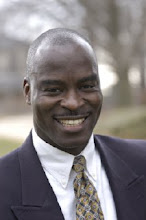In Liberia, the Ebola virus has killed more than 325 people, including 39 health care workers, since it erupted in the country in May 2014. CPE
is embarking on an awareness and sensitization campaign about the reality,
causes, consequences, and to help prevent Ebola transmission. Moreover, CPE is also working hard to help deescalate and
resolve disputes arising from fears about the virus before they turn into
violent conflict.
Please Click Here To Support Our Work
The impact has been particularly devastating in part due to skepticism of foreign medicines and fear of reporting Ebola-like symptoms likely to result in alienation and stigmatization. To make matters worse, the average Liberian citizen does not have access to a vehicle, clean running water, or electricity, let alone the internet or international news outlets.
Many local hospitals and community clinics have been closed for fear of contracting Ebola resulting in a number of additional deaths from unrelated (and untreated) illnesses like malaria, typhoid, cholera, and meningitis. The combination of all of these factors has escalated into conflict between local community dwellers and law enforcement officers, in some cases leading to more unwarranted injuries.
The Center for Peace Education (CPE), a 501(c)(3) non-governmental organization dedicated to teaching peace at the community level in Liberia, is embarking on an awareness and sensitization campaign about the Ebola virus to help ameliorate rising conflicts within the community and enlighten local community dwellers about the reality of the virus.
Since CPE is already working in the community at the local level, we have garnered the trust and confidence of local people and are equipped to help erase any speculation that the Ebola virus is fake, educate people about what the virus is and simple ways to prevent it from being transmitted, and encourage those infected to receive treatment, including assistance from foreign doctors and potentially life-saving medicines.
CPE is working with local community and traditional leaders in Liberia as well as partnering with government organizations and religious institutions in the US to fund its efforts to increase awareness and understanding of the Ebola virus as a way to prevent its continued transmission and to help deescalate and resolve disputes arising from fears about the virus before they turn into violent conflict.

















